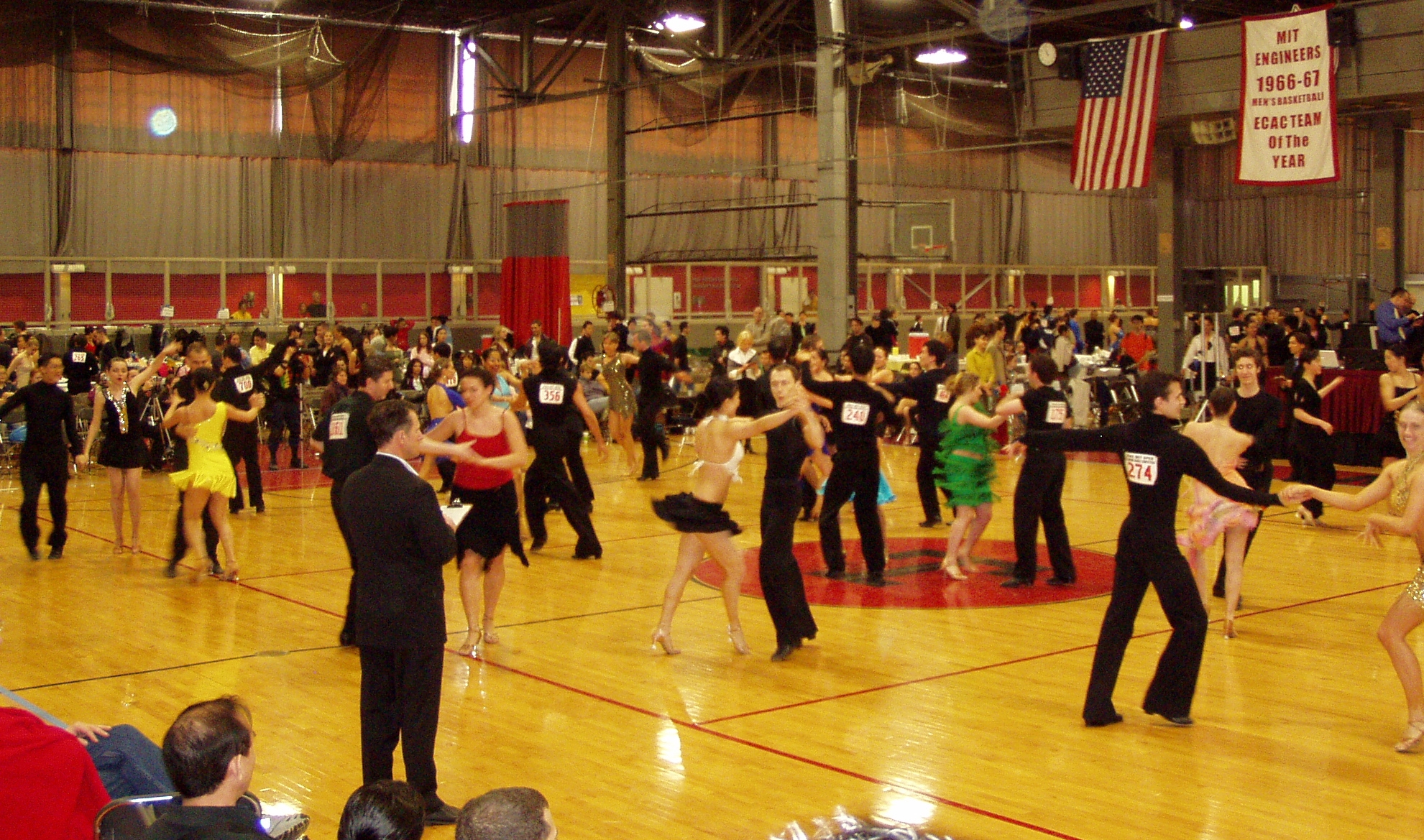Difference between revisions of "Ballroom Dance Competition"
From Londonhua WIKI
| Line 17: | Line 17: | ||
<br> | <br> | ||
| − | = | + | =Format= |
| + | <br> | ||
| + | Depending on the focus, a Ballroom competition might feature sections for any and all of the dances, from the Smooth/Standard styles to the Rhythm/Latin styles. These styles are broken down as follows<ref>Ballroom 101. (n.d.). Retrieved May 12, 2017, from http://usadance.org/college/ballroom-101/</ref>. | ||
| + | <br> | ||
| + | *'''Smooth:''' [[Waltz]], Foxtrot, Tango, Viennese Waltz | ||
| + | * '''Standard:''' [[Waltz]], Foxtrot, Tango, Viennese Waltz, QuickStep | ||
| + | * '''Rhythm:''' Cha-Cha, Rumba, Swing, Mambo, Bolero | ||
| + | * '''Latin:''' Cha-Cha, Rumba, Jive, Samba, Paso Doble | ||
<br> | <br> | ||
<br><br> | <br><br> | ||
| − | |||
=References= | =References= | ||
<br> | <br> | ||
Revision as of 15:13, 12 May 2017
Ballroom Dance Competition
 | |
| Intermediate level Latin dancing at the 2006 MIT Ballroom Dance Competition, judge standing in foreground | |
|---|---|
| Credit: | Nathaniel C. Sheetz[1] |
Overview
Ballroom Dance Competitions, sometimes referred to as DanceSport, are organized and regulated competitions in which ballroom dancers perform for judges. Depending on the competition, finalists may win trophies, ribbons, cash, dance scholarships, or other prizes.
Format
Depending on the focus, a Ballroom competition might feature sections for any and all of the dances, from the Smooth/Standard styles to the Rhythm/Latin styles. These styles are broken down as follows[2].
- Smooth: Waltz, Foxtrot, Tango, Viennese Waltz
- Standard: Waltz, Foxtrot, Tango, Viennese Waltz, QuickStep
- Rhythm: Cha-Cha, Rumba, Swing, Mambo, Bolero
- Latin: Cha-Cha, Rumba, Jive, Samba, Paso Doble
References
- ↑ Nathaniel C. Sheetz [CC BY-SA 3.0 (http://creativecommons.org/licenses/by-sa/3.0)], via Wikimedia Commons
- ↑ Ballroom 101. (n.d.). Retrieved May 12, 2017, from http://usadance.org/college/ballroom-101/